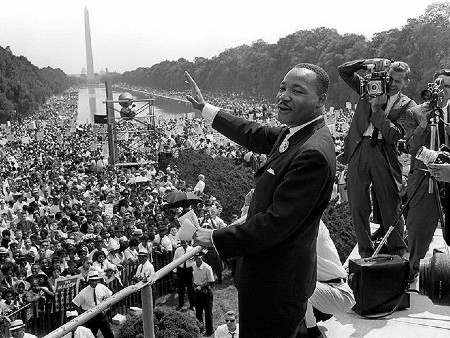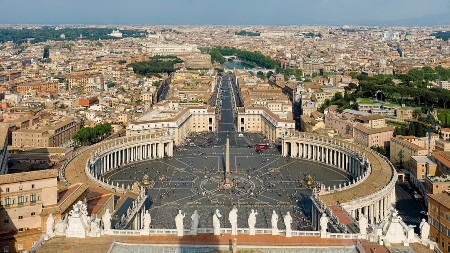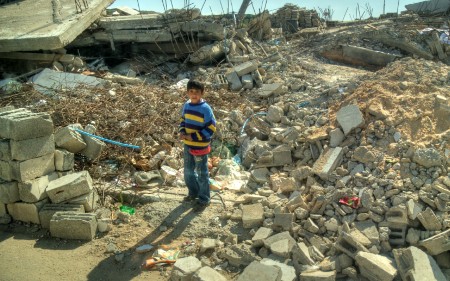Formation for the Priesthood (Part 2)
FREE Catholic Classes
I was told the story of a French seminary in which adoration of the Most Holy Sacrament had been banned for a good twenty years.
Highlights
Chiesa (chiesa.espresso.repubblica.it)
6/12/2009 (1 decade ago)
Published in Europe
ROME (Chiesa) - Here is the second part of the speech of the secretary of the congregation for Catholic education to the rectors of the pontifical seminaries, published by "L'Osservatore Romano" on June 3, 2009:
****
EMBRACE THE WORLD, OR OPPOSE IT?
There now exists within the European Churches, and perhaps within the American Church as well, a line of division, sometimes of fracture, between a current of "composition" and a current of "contestation."
The first leads us to observe that secularization includes values with a strong Christian influence, like equality, freedom, solidarity, responsibility, and that it should be possible to come to terms with this current and identify areas of cooperation.
The second current, on the contrary, calls for keeping distance. It maintains that the differences or points of opposition, above all in the field of ethics, will become increasingly pronounced. It therefore proposes an alternative to the dominant model, and accepts the minority opposition role.
The first current emerged mainly during the period following the council; it provided the ideological framework for the interpretations of Vatican II that were imposed at the end of the 1960's and in the following decade.
Things were reversed beginning in the 1980's, above all - but not exclusively - under the influence of John Paul II. The current of "composition" has aged, but its proponents still hold key positions in the Church. The current of the alternative model has become much stronger, but it has not yet become dominant. This would explain the tensions at the moment in many of the Churches on our continent.
It would not be difficult for me to provide examples illustrating the contrast I have just described.
Today the Catholic universities fall along this dividing line. Some of them play the card of adaptation and cooperation with secularized society, at the cost of finding themselves forced to take a critical distance from this or that aspect of Catholic doctrine or morality. Others, of more recent inspiration, emphasize the confession of the faith and active participation in evangelization. The same applies to the Catholic schools.
And the same could be said, to return to the topic of this meeting, in regard to the typical profile of those who knock on the doors of our seminaries or religious houses.
Candidates of the first tendency have become increasingly rare, to the great displeasure of the priests of the older generations. The candidates of the second tendency have now become more numerous than the others, but they hesitate to cross the threshold of our seminaries, because often they do not find what they are looking for there.
They are concerned about identity (and are sometimes mockingly described as "identitarians"): the Christian identity - how should we distinguish ourselves from those who do not share our faith? - and the identity of the priest, while the identity of the monk and the religious is easier to perceive.
How can harmony be fostered between educators, who often belong to the first current, and the young people who identify with the second? Will the educators continue to cling to criteria of admission and selection that date back to their own time, but no longer correspond to the aspirations of the young?
I was told the story of a French seminary in which adoration of the Most Holy Sacrament had been banned for a good twenty years or so, because it was seen as too devotional: the new seminarians had to struggle for a number of years to have it reinstated, while some of the professors preferred to resign in the face of something that they judged as a "return to the past"; by giving in to the requests of the younger men, they had the impression that they were renouncing what they had fought for their entire lives.
In the dioceses in which I have been bishop, I have experienced similar difficulties when older priests - or even whole parish communities - have had great difficulty in responding to the aspirations of the young priests who were sent to them.
I understand the difficulties that you encounter in your ministry as seminary rectors. More than the passage from one generation to another, you must ensure a smooth transition from one interpretation of Vatican Council II to another, and possibly from one ecclesial model to another. Your position is delicate, but it is absolutely essential for the Church.
---
Chiesa is a wonderful source on all things Catholic in Europe. It is skillfully edited by Sandro Magister. SANDRO MAGISTER was born on the feast of the Guardian Angels in 1943, in the town of Busto Arsizio in the archdiocese of Milan. The following day he was baptized into the Catholic Church. His wife�s name is Anna, and he has two daughters, Sara and Marta. He lives in Rome.
Join the Movement
When you sign up below, you don't just join an email list - you're joining an entire movement for Free world class Catholic education.

-

-
Mysteries of the Rosary
-
St. Faustina Kowalska
-
Litany of the Blessed Virgin Mary
-
Saint of the Day for Wednesday, Oct 4th, 2023
-
Popular Saints
-
St. Francis of Assisi
-
Bible
-
Female / Women Saints
-
7 Morning Prayers you need to get your day started with God
-
Litany of the Blessed Virgin Mary
Daily Catholic
 Daily Readings for Thursday, January 16, 2025
Daily Readings for Thursday, January 16, 2025 St. Fursey: Saint of the Day for Thursday, January 16, 2025
St. Fursey: Saint of the Day for Thursday, January 16, 2025 Prayer for a Blessing on the New Year: Prayer of the Day for Tuesday, December 31, 2024
Prayer for a Blessing on the New Year: Prayer of the Day for Tuesday, December 31, 2024- Daily Readings for Wednesday, January 15, 2025
- St. Paul the Hermit: Saint of the Day for Wednesday, January 15, 2025
- St. Theresa of the Child Jesus: Prayer of the Day for Monday, December 30, 2024
![]()
Copyright 2024 Catholic Online. All materials contained on this site, whether written, audible or visual are the exclusive property of Catholic Online and are protected under U.S. and International copyright laws, © Copyright 2024 Catholic Online. Any unauthorized use, without prior written consent of Catholic Online is strictly forbidden and prohibited.
Catholic Online is a Project of Your Catholic Voice Foundation, a Not-for-Profit Corporation. Your Catholic Voice Foundation has been granted a recognition of tax exemption under Section 501(c)(3) of the Internal Revenue Code. Federal Tax Identification Number: 81-0596847. Your gift is tax-deductible as allowed by law.






 Daily Readings for Thursday, January 16, 2025
Daily Readings for Thursday, January 16, 2025 St. Fursey: Saint of the Day for Thursday, January 16, 2025
St. Fursey: Saint of the Day for Thursday, January 16, 2025 Prayer for a Blessing on the New Year: Prayer of the Day for Tuesday, December 31, 2024
Prayer for a Blessing on the New Year: Prayer of the Day for Tuesday, December 31, 2024


